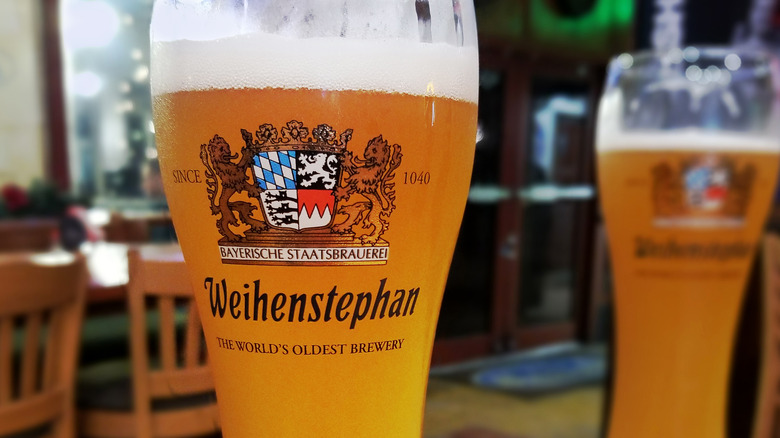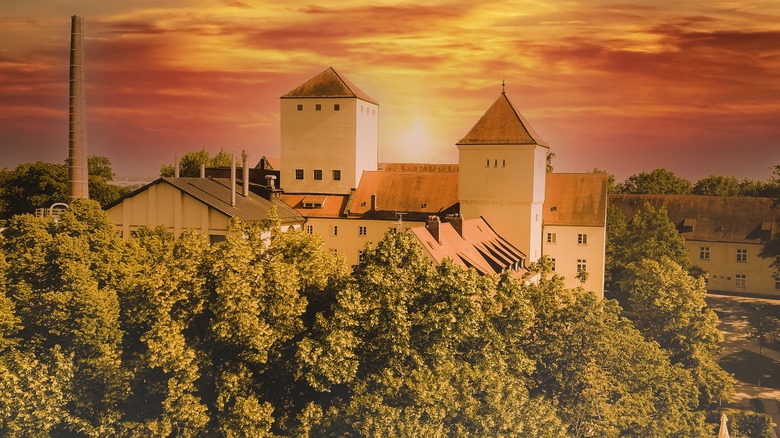Germany's Weihenstephan Brewery Has Been Making Beer Since The 11th Century
Modern-day craft brewers have a lot going on, from innovative hands-on techniques to definitive flavor profiles and high-quality ingredients. The truth is, prior to mass production in the beer industry, most brews were crafted that way using local ingredients and a lot of basic know-how. In that regard, Weihenstephan Brewery in Germany could be considered a craft brewery almost a thousand years ago.
It officially began selling beer as the Weihenstephan Monastery Brewery in 1040. Almost 500 years later, the Bavarian Purity Law of 1516 cemented the purity of Bavarian and Weihenstephan beer by limiting brews to only three ingredients: barley, hops, and water. All these centuries later, the brewery still adheres to those purity laws with the three stated ingredients, plus proprietary yeast strains. It now produces more than a dozen types of beer, including original, light, and dark wheats as well as non-alcoholic versions and a 1516 Kellerbier brand commemorating the 500th anniversary of the purity law.
By most accounts, including the brewery's own stated history, Weihenstephan Brewery is the oldest still-existing brewery in the world. It also operates from the same Benedictine monastery location where the original hops were grown. The building itself has been through several incarnations and renovations due to occurrences both natural and unnatural, but it has survived nonetheless. The monastery perches on the Weihenstephan hill overlooking the Upper Bavarian Plateau, the Alps, and the historic old town of Freising on the outskirts of Munich.
Weihenstephan Brewery through the centuries
Monasteries in Europe come with tales of history and mystery, some tied to the common Middle Ages practice of making wine and beer. It's hardly a surprise that Weihenstephan Monastery and its Benedictine monks would be involved in brewing, though they may have been doing it earlier than others. In fact, financial records indicate that hops were being grown on or near the estate grounds as early as 768.
Unfortunately, Weihenstephan Monastery was in the crosshairs of numerous adversaries for hundreds of years. From 1085 to 1463, it fell to pillagers, wars, plagues, famines, a devastating earthquake, and four full-destruction fires. Each time, the monks regrouped, rebuilt, and continued brewing, coming back stronger while refining their skills. The year 1803 was a defining moment for Weihenstephan, when the monastery itself was dissolved, and the entire operation fell under the control of the Bavarian State. But the brewery, as usual, continued. It's officially known today as the Weihenstephan Royal Bavarian State Brewery but is still commonly, and nostalgically, called by the more humble origin name of Weihenstephan Monastery Brewery.
In addition to the brewery, the former monastery now houses the Technical University Munich, which absorbed the former University of Agriculture and Brewing. It's now considered a world-class enclave for modern brewing technology, training students from near and far. As for the beer, it matures in cellars hidden about 50 feet below the monastery gardens, emerging in time-tested batches dispersed across the globe.

